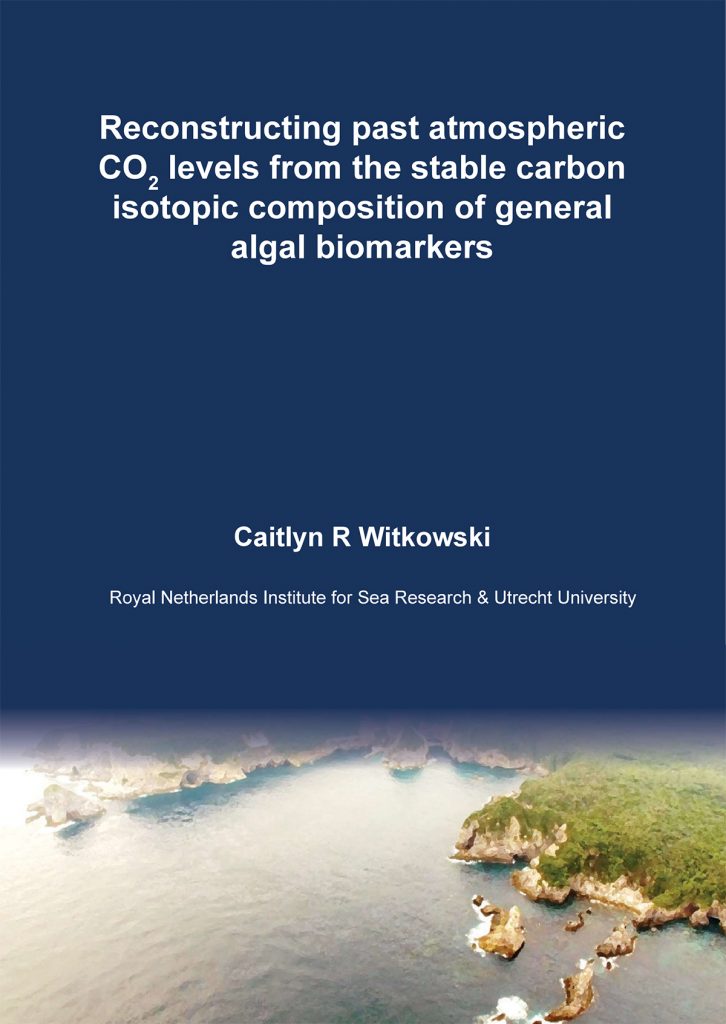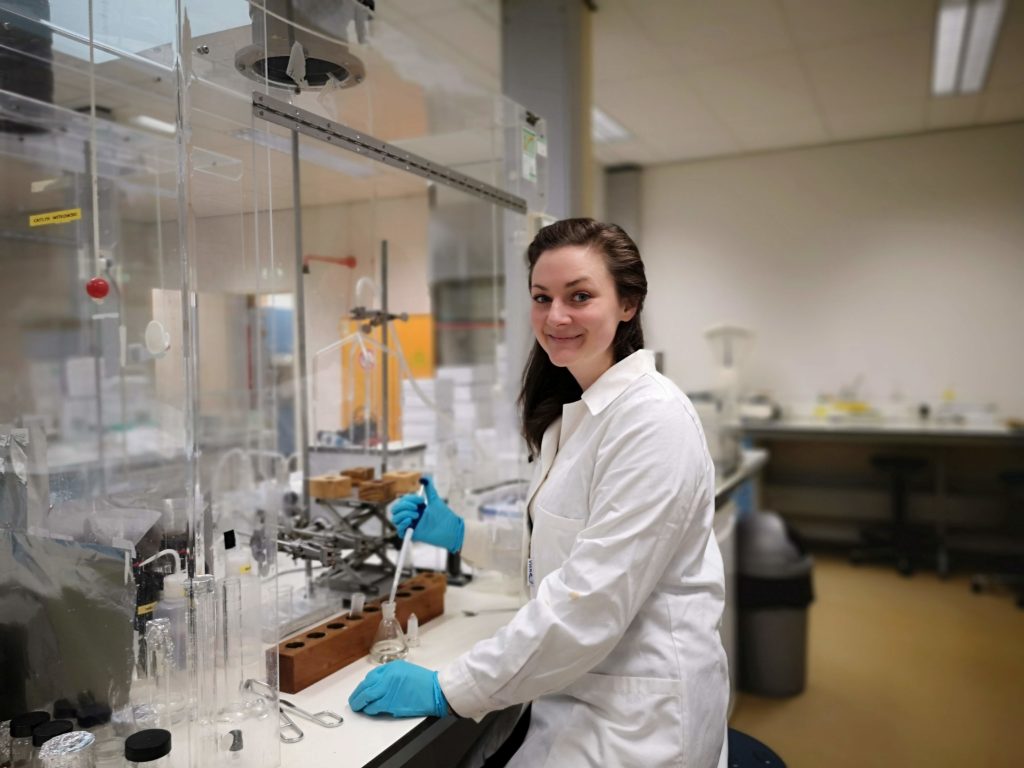PhD defence: Reconstructing past atmospheric CO2 levels from the stable carbon isotopic composition of general biomarkers: Development and application
 PhD Candidate: Caitlyn Witkowski
PhD Candidate: Caitlyn Witkowski
Defence date: 17-01-2020
Time: 12:45
Institute: Utrecht University
Location: University Hall (Academiegebouw), Domplein 29, Utrecht
Reconstructing past atmospheric CO2 levels to better understand climate change

PhD-researcher Caitlyn Witkowski (NIOZ) developed a new approach to reconstruct past concentrations of carbon dioxide (CO2). In the global climate system CO2 plays a critical role and the continuous rise of CO2 in the earth’s atmosphere is a growing concern. Scientists study the past of the earth to better understand how sensitive the climate is to increasing CO2, however, reconstructing CO2 levels over long timescales has remained a challenge. Using compounds from algal species, Witkowski developed a new proxy to create a 500 million years CO2 record – the longest spanning CO2 record to date. Witkowski will defend her dissertation at the University of Utrecht on Friday, January 17, 2020.
Direct measurements of air bubbles trapped in ice, deposited in the last million years, show that the concentration of atmospheric carbon dioxide has a striking relationship with temperature on Earth. Beyond that one-million-year record, long-scale CO2 reconstructions are made on the basis of proxies: physically preserved material which reflect an environmental parameter. Despite tremendous strides over the past several decades, it remains difficult to accurately reconstruct long-scale CO2 concentrations.

Longest spanning record
Witkowski’s PhD research developed and applied a new approach to an established CO2 proxy, the stable carbon isotopic composition (δ13C) of organic compounds characteristic of algae. As opposed to the more commonly used species-specific compound, Witkowski explores a new suite of organic compounds derived from all algal species. She shows in two modern environmental transects across high CO2 gradients that this approach is indeed possible and then applies these general organic compounds to three different time periods: the past 200 thousand years, the past 17 million years, and the past 500 million years. This newly developed proxy based on general algal biomarkers shows promise, both geographically (location) and geologically (time), as the longest spanning CO2 record to date.
For Tipping Point Ahead, NESSC’s educational programme, Witkowski featured in the below movie clip, about her research on climate sensitivity and the use of proxies:

